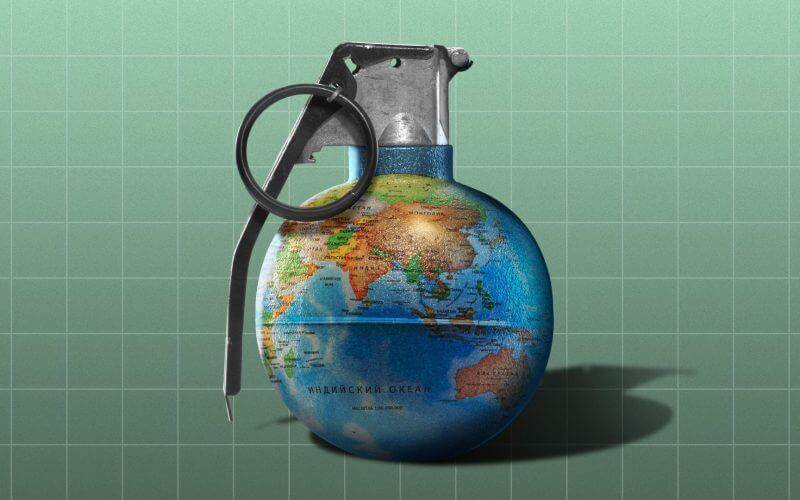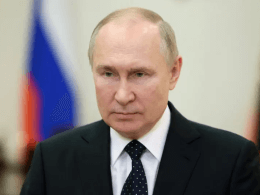Russia announced a partial pullback in Ukraine today, but the crisis is far from over.
Why it matters: If there was a Russian invasion, there would not only be geopolitical shockwaves and human tragedy, but it also could upend markets and strain the global economy.
- The largest country on earth by land mass, Russia is a commodities giant, ranking as a top producer of natural gas, oil, nickel, palladium, copper, coal, potash, wheat and more.
- Disruptions to Russian exports — either at Russian President Vladimir Putin's say-so or due to sanctions — would drive up commodity costs, adding to global inflationary pressures and supply chain disarray.
State of play: Russia is the largest supplier of natural gas and crude to the European Union.
- Oil prices briefly jumped above $96 a barrel on Monday — the highest since 2014 — as investors grew skittish about continued access to Russian crude.
- Natural gas is an issue too. Europe — particularly Germany — is most exposed should supplies of Russian natural gas stop flowing. More than 20% of Germany's gas flows from Russia, so a gas shutoff to the European economic and export giant could hurt growth and reverberate throughout global supply chains.
Read More
Sign Up for Lisa's Top Ten to get a daily briefing on the world each morning.
Start your free trial today.










